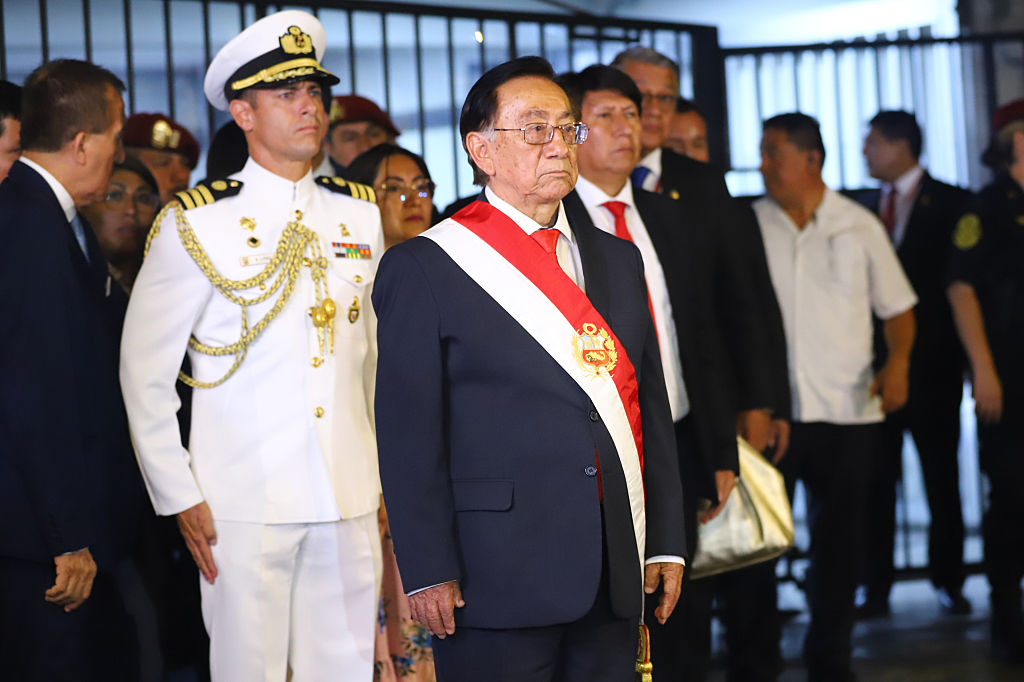Prior to Election, Venezuela Begins IACHR Withdrawal
Prior to Election, Venezuela Begins IACHR Withdrawal
The Andean country could leave the Inter-American Commission on Human Rights within a year, raising concerns due to the timing of the announcement a month before the presidential election.
With less than a month remaining until Venezuela’s presidential election, officials from the Andean country began the process of withdrawing from the hemisphere’s human rights system. Analysts say Venezuela’s exit from the Inter-American Court of Human Rights and the Inter-American Commission on Human Rights (IACHR) could have serious repercussions, and that it sends a troubling message prior to what could prove a close race for the presidency. Voters will choose between incumbent President Hugo Chávez—who has been in power since 1999—and opposition candidate Henrique Capriles on October 7.
Warning signs of the withdrawal began earlier this year. In April, Chávez announced Venezuela would withdraw from the Organization of American States (OAS) human rights council. In August, Foreign Minister Nicolás Maduro said Venezuela’s withdrawal would go into effect in a year. On September 7, Chávez said the IACHR had manipulated rumors of an alleged massacre of 80 people from the indigenous Yanomami tribe in Venezuela earlier this month. He declared: “We have to definitively leave these [human rights] agencies, which are agencies of imperialism.” The Venezuelan government officially started the withdrawal process on September 10 by notifying OAS Secretary General José Miguel Insulza and denouncing the American Convention on Human Rights.
Leaving the OAS human rights system raised flags among policy watchers, as well as the Venezuelan opposition. Dr. Carlos Ponce, general coordinator of the Latin American and Caribbean Network for Democracy, warned that the withdrawal could be part of a trend. He wrote that: “Venezuela is progressively withdrawing from any international agreement in economic, human rights, or trade policy that implies fulfilling obligations or monitoring mechanisms or the possibility of any person or entity to be protected from government abuse.” Some observers also expressed concern about the timing of the announcement. Director of the watchdog group Espacio Público Carlos Correa told EFE: “I believe it’s not the opportune or adequate time because, in light of the electoral campaign, the message it’s sending is a message that reduces the rights of Venezuelans.” Commenting on the IACHR withdrawal, Capriles vowed to keep Venezuela in the OAS human rights system and criticized Chávez, saying: “The government…does not tolerate decisions from international authorities that check its abuse of power.”
Venezuela’s exit from the IACHR could affect not only Venezuela, but the region as a whole. On September 11, the UN High Commissioner for Human Rights Navi Pillay urged Venezuela to reconsider the withdrawal, saying: “I fear that a vital layer of human rights protection for Venezuelans and potentially for other Latin Americans as well will be stripped away if this decision is carried out, and they will be left far more vulnerable to abuses with fewer remedies available.” In a May Americas Quarterly blog post, AS/COA’s Senior Director of Policy Christopher Sabatini wrote that if Venezuela withdraws from the IACHR, “it will weaken five decades of precedence, practice and intellectual framework for the extra-territoriality of human rights—which is exactly [Chávez’s] intent.”
In other Andean news:
- On September 12, four Venezuelan minority parties announced they would no longer support opposition candidate Henrique Capriles, accusing him of planning a "neoliberal package" should he be elected president.
- The Council on Foreign Relations released a report by the former U.S. ambassador to Venezuela on possible outcomes for the October 7 elections and how they could stir political violence.
- Following the August announcement of peace talks between the Colombian government and guerrilla group the Revolutionary Armed Forces of Colombia (FARC), the head of the rebel group started a Twitter account on September 5. According to Semana, the first person he followed was President Juan Manuel Santos. Nearly eight in ten Colombians approve of the peace talks with the FARC, an Ipsos survey shows.
- Twenty years after the capture of Shining Path founder Abimael Guzmán, La República analyzes the state of the Peruvian guerrilla group, which is still active and “appears to be expanding into social organizations and among youth.”







